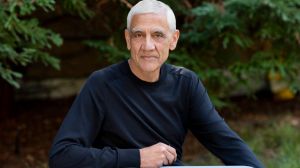The importance of being Vietnam
Looking ahead, there is no doubt Vietnam will emerge as the leader of Southeast Asia

The proclamation of a ‘strategic partnership’ between New Delhi and Hanoi during Premier Nguyen Tan Dung’s three-day visit to India last week marks the acceleration of the strategic realignment in Asia. Amidst a transformation of Asian geo-politics, there is a new scramble for organising security partnerships through a variety of bilateral and multilateral arrangements.
The rise of China, the new assertiveness of Japan and the growing weight of India are part of a fundamental redistribution of power in Asia. The changing Asian power balance involves not just the major powers but also key regional players like Vietnam.
For New Delhi, Dung’s visit was an opportunity to put behind the political and commercial neglect of Vietnam in recent years. Even more important was the decision to lay the foundation for an enduring bilateral cooperation in the fields of defence and security, as well as in sensitive civilian sectors like nuclear energy and space. That India and Vietnam share the same goals on the Asian balance of power and are willing to act on it might have come as a surprise for the Indian Left. For Indian communists, Vietnam might be just part of an ideological slogan. But for the Indian foreign policy establishment, Vietnam was always central to the geopolitics of Indo-China and East Asia. No wonder then, Indira Gandhi risked a massive backlash from the US, China, Japan and Southeast Asia, in supporting the Vietnamese intervention in Cambodia in the late seventies.
Vietnam’s geopolitical significance has multiplied many times since then. Thanks to relentless reforms, Communist Vietnam today is one of the world’s fastest growing economies averaging around 8 per cent a year. With its 85 million people, Vietnam is the 13th largest nation in the world. Add these two factors to Vietnam’s strategic location in East Asia and a fiercely independent foreign policy, and you see a new Asian power shaping up. Looking ahead, there is no doubt Vietnam will emerge as the leader of Southeast Asia and a pivot of East Asian power politics.
While its heroic resistance to a massive American military intervention from the mid-sixties to the mid-seventies made Vietnam a political icon for the Indian Left, Hanoi does not wallow in victimhood. Within the simple worldview of the Indian Left, an independent foreign policy equals anti-Americanism. For Vietnam today, one of the world’s few remaining communist countries, expansive cooperation with the US is in fact a guarantor of national autonomy against its more powerful Asian neighbours. Vietnam’s unswerving political commitment is to an independent foreign policy and not facile anti-US stances. An acute sensitivity to the changing balance of power in Asia guides the current Vietnamese strategy of befriending the US and Japan, and intensifying security cooperation with India without antagonising China. Having fought against many great powers — France, Japan, the US and China — in its recent history, Vietnam has the national self-confidence to play the game of realpolitik.
That friendship with the US has become one of the principal national strategic objectives of Hanoi is reflected in the growing Vietnamese military exchanges with the US. Vietnam actively encourages the US navy’s port calls in Vietnam. Unlike our Left leaders, no Vietnamese communist calls the American warships “blood-stained”. For his part, President Bush spent as much political capital on pushing the free trade agreement with Vietnam in the dying days of the previous US Congress in December 2006 as he did on the Indo-US nuclear deal. Washington also strongly supported Vietnam’s entry into the WTO.
Late last month the Vietnamese president, Nguyen Minh Triet, was on a visit to the US. While the first visit by a top Vietnamese leader to the US had its share of controversies, there is no denying that Washington and Hanoi are drawing closer. The same is true of Vietnam’s ties with Japan. Tokyo sees Vietnam as a major destination for its capital in its ‘China plus one’ strategy — as well as its aid. In October 2006, Premier Dung visited Japan and formalised an agreement on strategic partnerships.
As it woos Washington, Tokyo and New Delhi, Hanoi has been conscious of Chinese sensitivities. Less than four weeks before travelling to the US, President Triet headed for Beijing to reassure it that Vietnam greatly values its relationship with China.
The missing link in Hanoi’s strategy has been a solid security partnership with New Delhi. With his successful trip to India, Dung might have put in place one of the last pieces of Asia’s geo-strategic puzzle.
The writer is a professor at the Rajaratnam School of International Studies, Nanyang Technological University, Singapore



- 01
- 02
- 03
- 04
- 05



























